Families mark WW2 plane crash in hilltop service
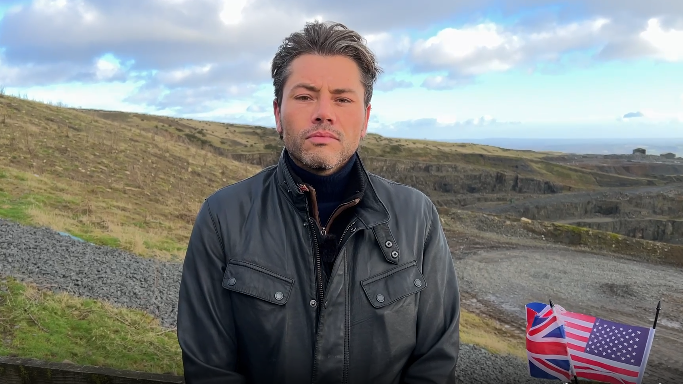
It has been 80 years since the Flying Fortress crashed onto Titterstone Clee Hill, Shropshire
- Published
A memorial service has been held to mark 80 years since six people died in a plane crash during World War Two.
Dozens of people, including family members of those who died, gathered on top of Titterstone Clee Hill in Shropshire on Monday.
On 25 November 1944, the US Air Force B-17-G , also known as the Flying Fortress, struck the top of a nearby quarry and crashed onto the hill.
"I came out here because my great-uncle, George C Johnson, is the pilot of the plane," said Emil Mark DeFrancesco, from California.
"He was basically done with his tour, this was a mission that was just carrying civilian pilots to Ireland," he told the BBC.
"He was just married one month earlier, to a British woman."
More than 20 families, mostly from the US, travelled to the crash site to remember their loved ones.
The memorial saw flags laid at a new commemorative stone, as well as poems read out and stories shared.
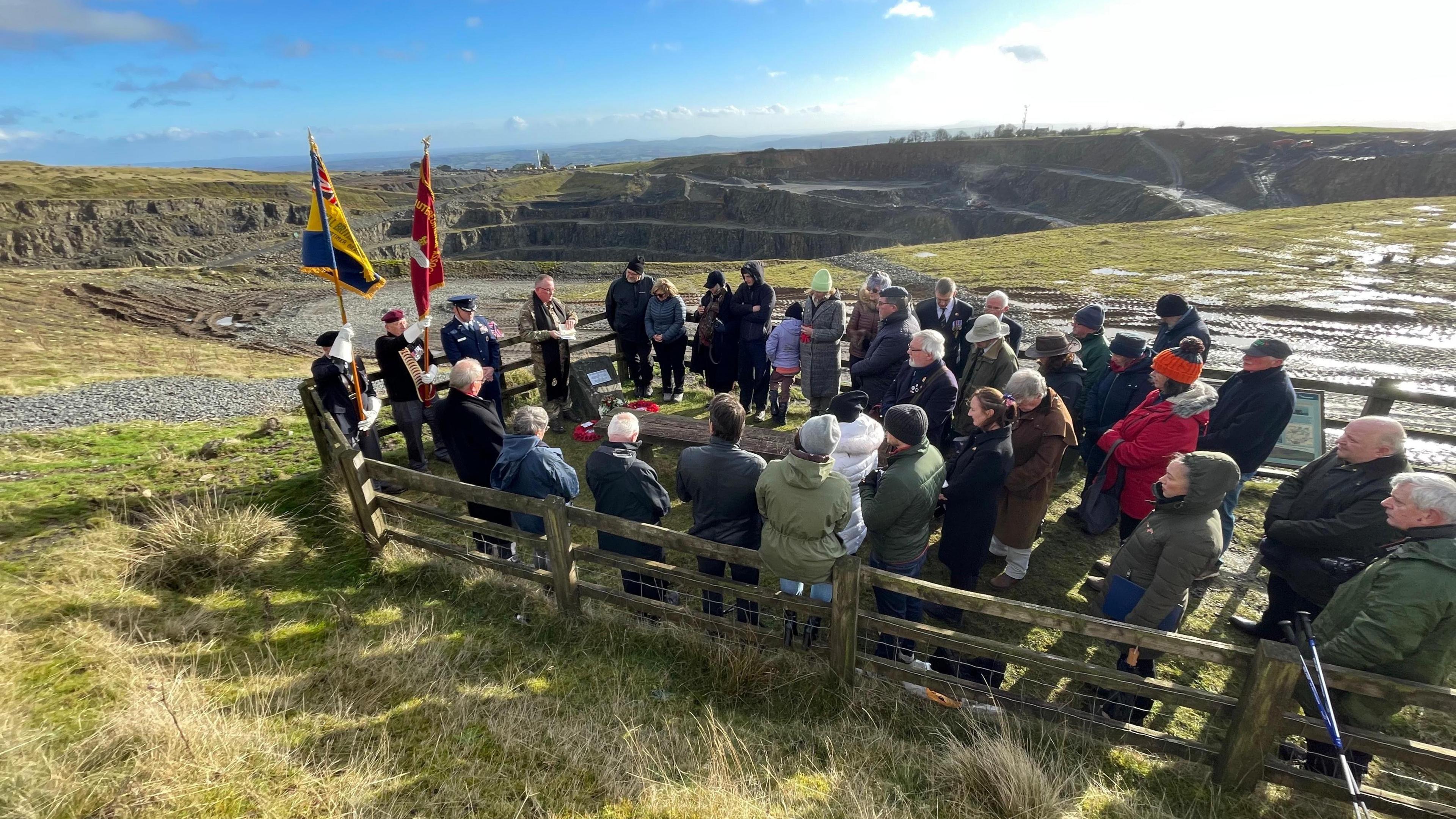
More than 20 families of those involved in the crash turned out for the service
"For me, understanding what this means, it’s some closure," said Mr DeFrancesco.
"I feel its going to close some kind of energetic spiritual tragedy that happened here.
"The silver lining is all these beautiful families came together, over 20 people from across the world to share something so tragic."
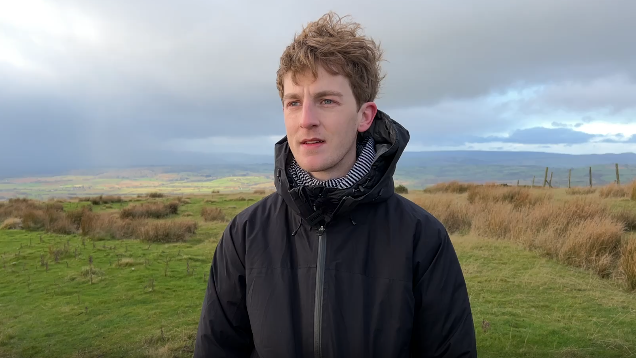
Families travelled from the US to visit the crash site
Servicemen from America, The Parachute Regimental Association, and the Royal British Legion also attended.
"It really is the most touching thing I can think of, especially to have these servicemen come out and stand there in just a jacket and… give their all, and say these things about these people that they don’t even know," said Charles Hartford Cobbs.
His great-grandfather, Hartford H. Vereen, who he was named after, was a passenger on the plane.
He was given the rank of Lieutenant Colonel the day before the accident.
"It's been something I’ve been interested in my whole life, and it really means a lot to come here today to be able to really involve myself," he said.
"The respect that everyone has is just the best thing that I can think of."
The crash in detail
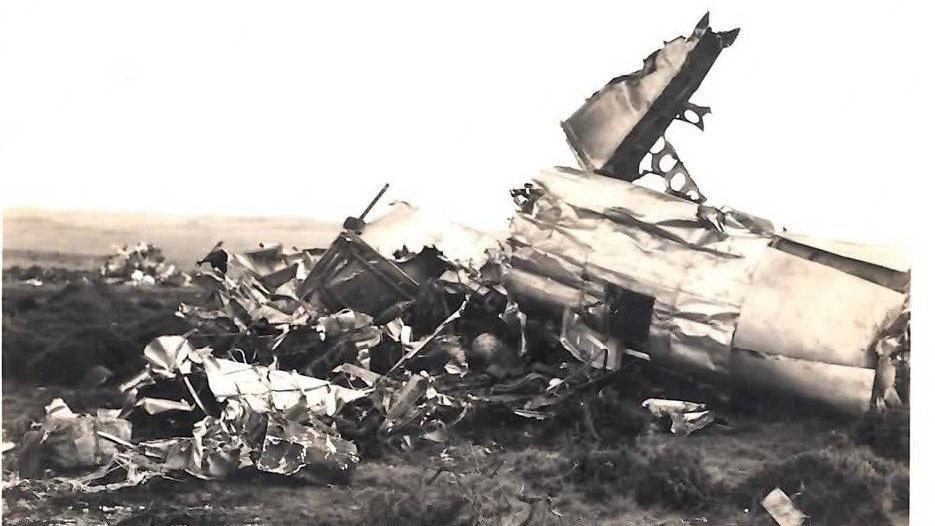
Everyone on board died in the crash 80 years ago
The Flying Fortress, a B17 plane, had taken off from Stansted on that fateful day.
Inside were passengers Capt Priscilla Gotto, Lt Col Hartford H. Vereen, and Maj Kenneth T. Omley.
Its crew consisted of Staff Sgt Fancis O. Hull, Cpl John E. Bean, and its pilot, Lt George C. Johnson.
All five men were from the United States Army Air Force, while Cpt Gotto was in the British Mechanised Transport Corps.
The plane was on its way to RAF Langford Lodge in Northern Ireland and should have flown to the east of Clee Hill, but was 28 degrees off course.
The summit of Titterstone Clee Hill was in a sleet storm with zero visibility, and Mr Johnson would not have seen the quarry face until the last moment.
Witnesses said there was a "huge roar" from the engines as the crew tried to gain height, but the tip of the left wing hit the top edge of Dhustone quarry.
The aircraft cartwheeled over the common and on to the top of the hill.
People rushed to the scene, and laid the casualties against some of the stone walls.
All died in the crash, apart from Cpl Bean, who died in an ambulance on the way to Ludlow Cottage Hospital.
Get in touch
Tell us which stories we should cover in Shropshire
Follow BBC Shropshire on BBC Sounds, Facebook, external, X, external and Instagram, external.
Related topics
Related stories
- Published11 November 2024
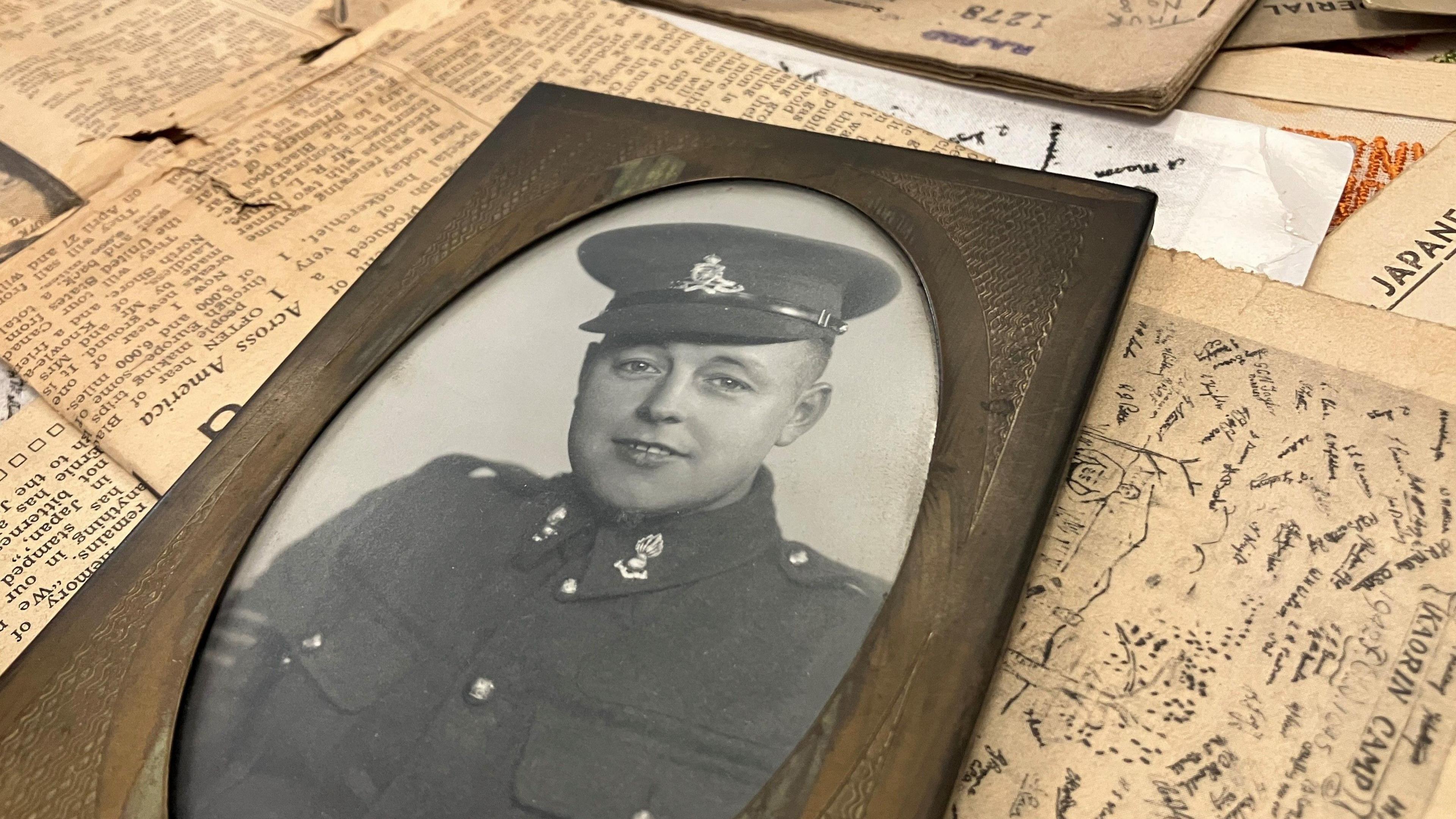
- Published9 September 2024
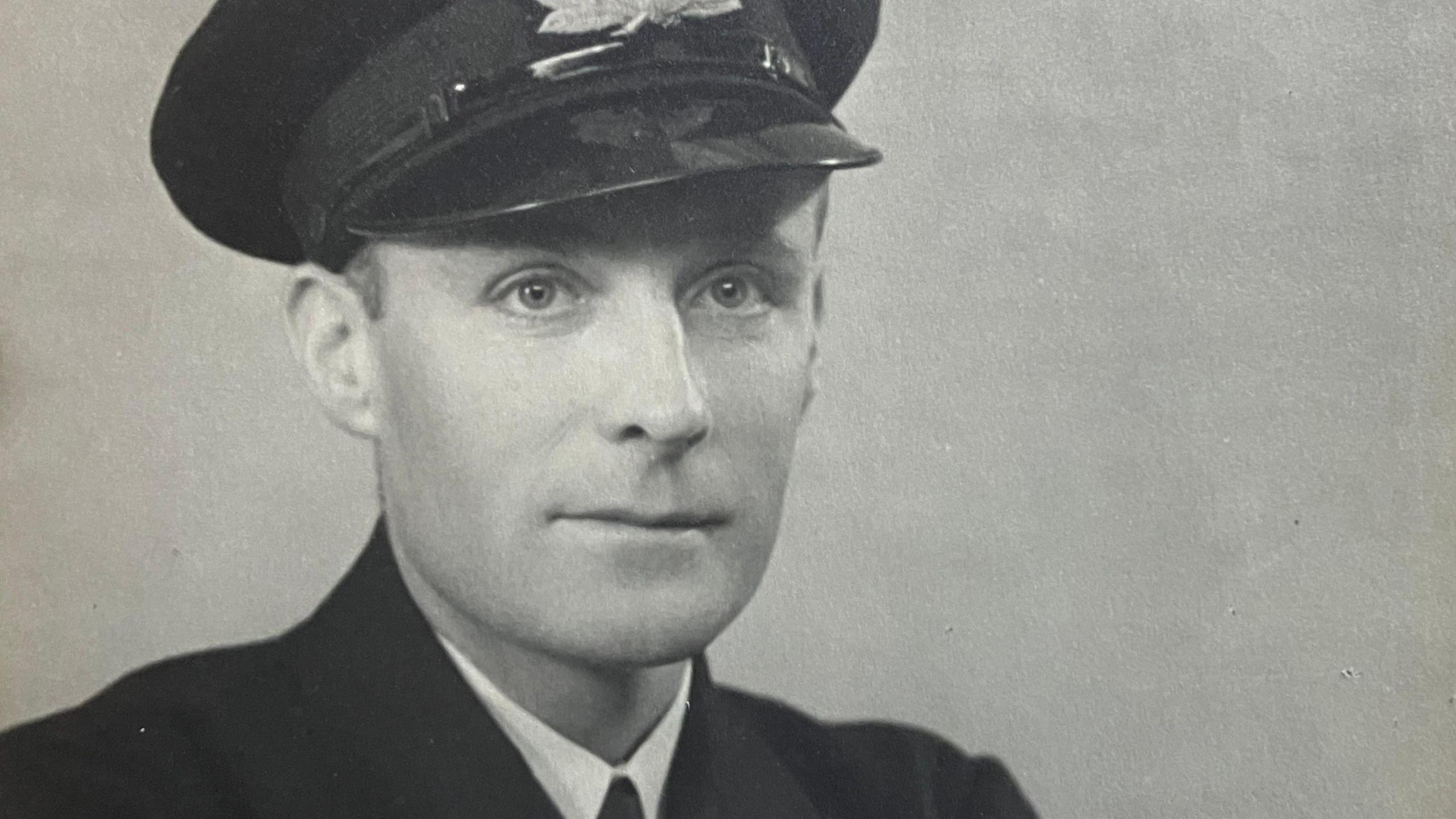
- Published6 September 2024
